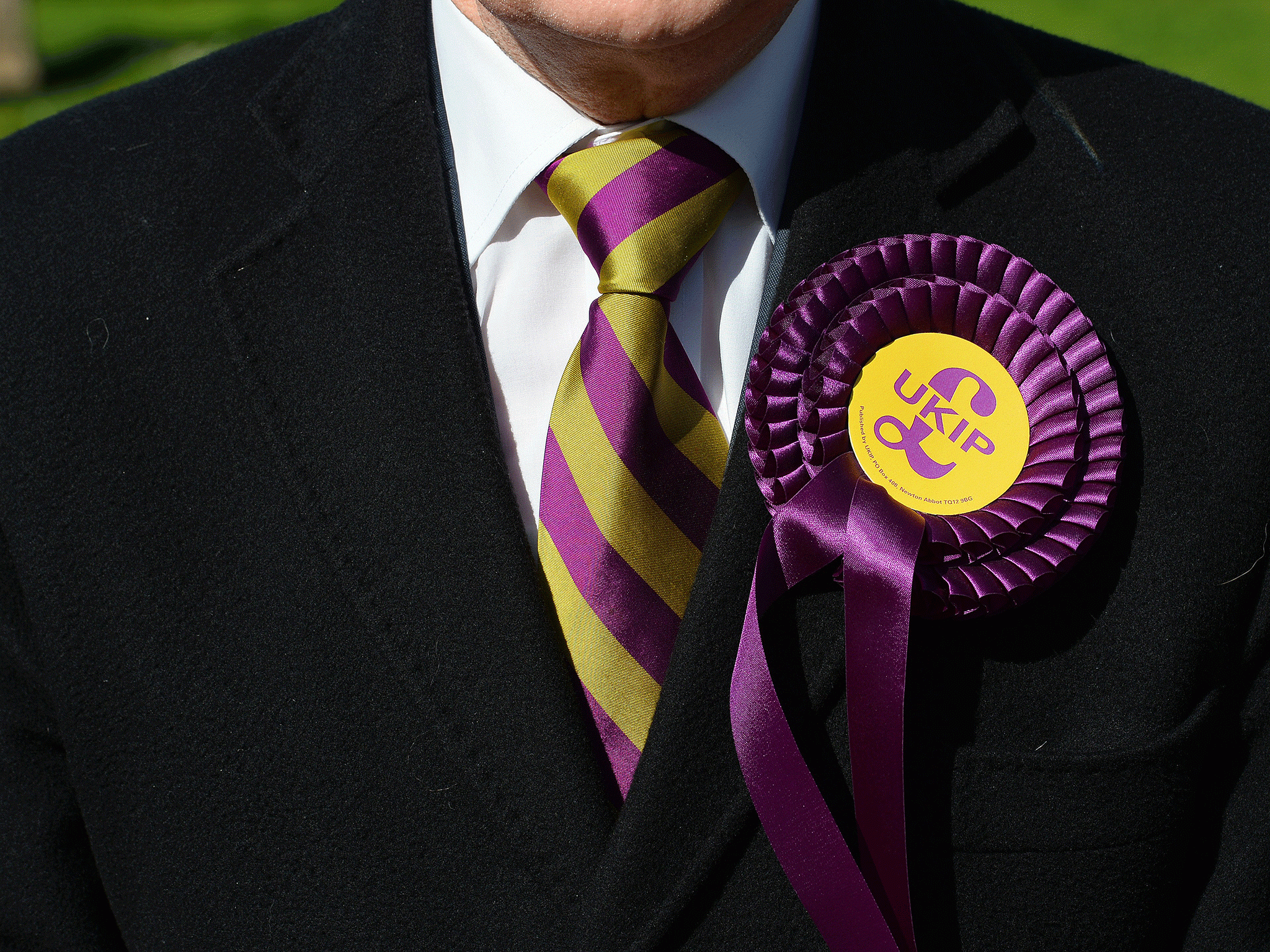Ukip avoided self-destruction today, but there is no need for it any more
The Conservatives can provide their own campaign to deliver the result of the EU referendum


Your support helps us to tell the story
From reproductive rights to climate change to Big Tech, The Independent is on the ground when the story is developing. Whether it's investigating the financials of Elon Musk's pro-Trump PAC or producing our latest documentary, 'The A Word', which shines a light on the American women fighting for reproductive rights, we know how important it is to parse out the facts from the messaging.
At such a critical moment in US history, we need reporters on the ground. Your donation allows us to keep sending journalists to speak to both sides of the story.
The Independent is trusted by Americans across the entire political spectrum. And unlike many other quality news outlets, we choose not to lock Americans out of our reporting and analysis with paywalls. We believe quality journalism should be available to everyone, paid for by those who can afford it.
Your support makes all the difference.In a country where Don’t Know comes second when people are asked who would be best prime minister, Ukip has just elected Who? as its new leader. It is the sort of result you might expect if you have seven candidates and just one round of voting. Henry Bolton won with 30 per cent of the vote.
On the face of it, though, Ukip members have made the most sensible choice. They didn’t go for the anti-Islam candidate, Anne Marie Waters. They didn’t go for the deputy leader, Peter Whittle, who had been endorsed by the outgoing leader Paul Nuttall. They went for the former soldier with a moderate CV (he used to be a Liberal Democrat) who nobody had heard of but who named Nigel Farage as his referee.
This wasn’t an endorsement, mind, but it meant Bolton could put Farage’s name on his campaign website. The members decided, by a narrow margin, not to go for the candidate that might make them look like the British National Party, or for the one identified with the leader who lost six out of seven of their 2015 votes in the June election.
Instead they went for the candidate closest to Farage, the man who gave them their great breakthroughs – the European Parliament election of 2014, when they came top of the poll with 27 per cent of the vote, and forcing David Cameron to hold a referendum on our membership of the EU.
They cannot recover those glory days, of course, because that referendum went their way and ended their party’s reason for existing. But they did at least avoid the route of immediate self-destruction, which is what would have happened if they had gone down the route of becoming a far-right party obsessed with Muslim immigration. That might have given Ukip shock-value publicity but at the cost of becoming an extremist fringe party.
Bolton won the leadership on an anti-extremist platform, against the right-wing extremism of Waters but also against what he calls the left-wing extremism of Jeremy Corbyn. We ought to be grateful for small mercies, but it is hard to see what the point of Ukip now is.
Nuttall tried to make Ukip a pressure group that would keep the Conservative Government honest over Brexit, but the Tory party is divided enough to provide that function itself. Every time Theresa May edges cautiously towards the soft Brexit favoured by Philip Hammond and Amber Rudd, Boris Johnson bursts on to the stage with a 4,000-word diatribe against the false attraction of paying to stay in the single market.
Even if the hopes of the Remainer irreconcilables are realised and there is another referendum, or if Brexit is otherwise frustrated or delayed, there is no need for Ukip. If Tony Blair, Sadiq Khan and the House of Lords get their way and Britain stays in the EU on 30 March 2019, or if they try to reverse Brexit once it has happened, the Conservative Party will provide all the reinforcements that a renewed Leave campaign could need.
Look at today’s YouGov poll of Tory members and note that 63 per cent of those expressing an opinion support a Brexiteer as May’s successor. Note, too, that when it came to it, the Leave campaign decided that it could win the referendum only by distancing itself from Ukip.
Ukip was finished the moment David Cameron won the 2015 election, which meant he would have to keep his promise to hold the referendum. If Remain had won, Ukip would have failed. But when Leave won, Ukip wasn’t needed any more. Its members, whether by accident or design, tried to stop their slide into irrelevance today, and they may have delayed it for a while, but the party really is over.
Join our commenting forum
Join thought-provoking conversations, follow other Independent readers and see their replies
Comments